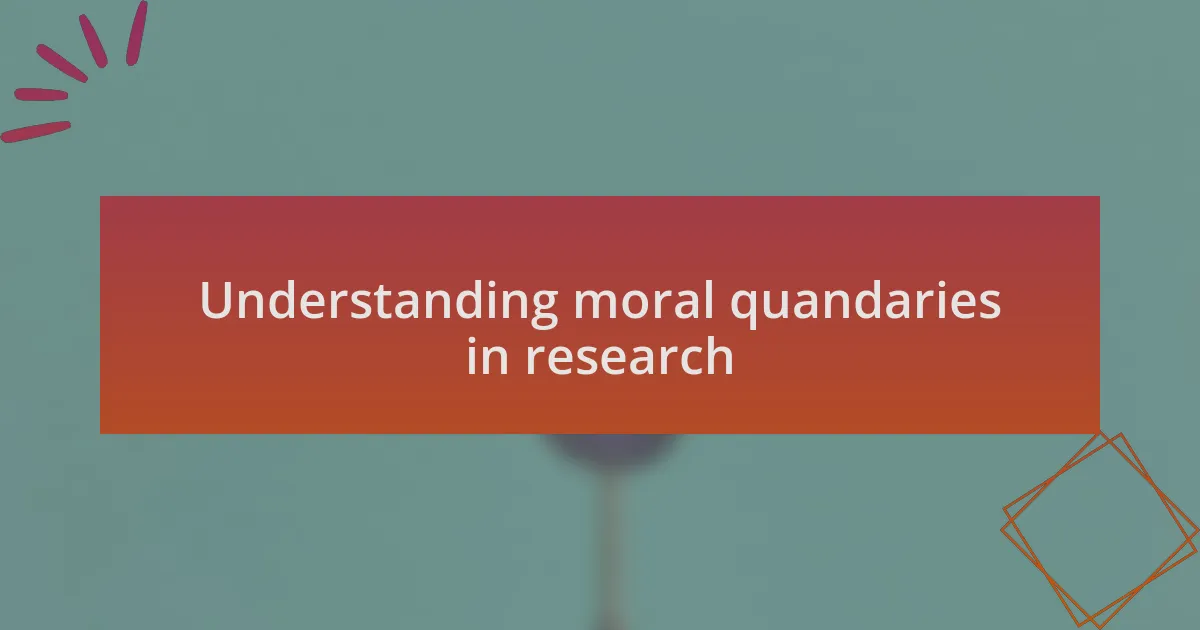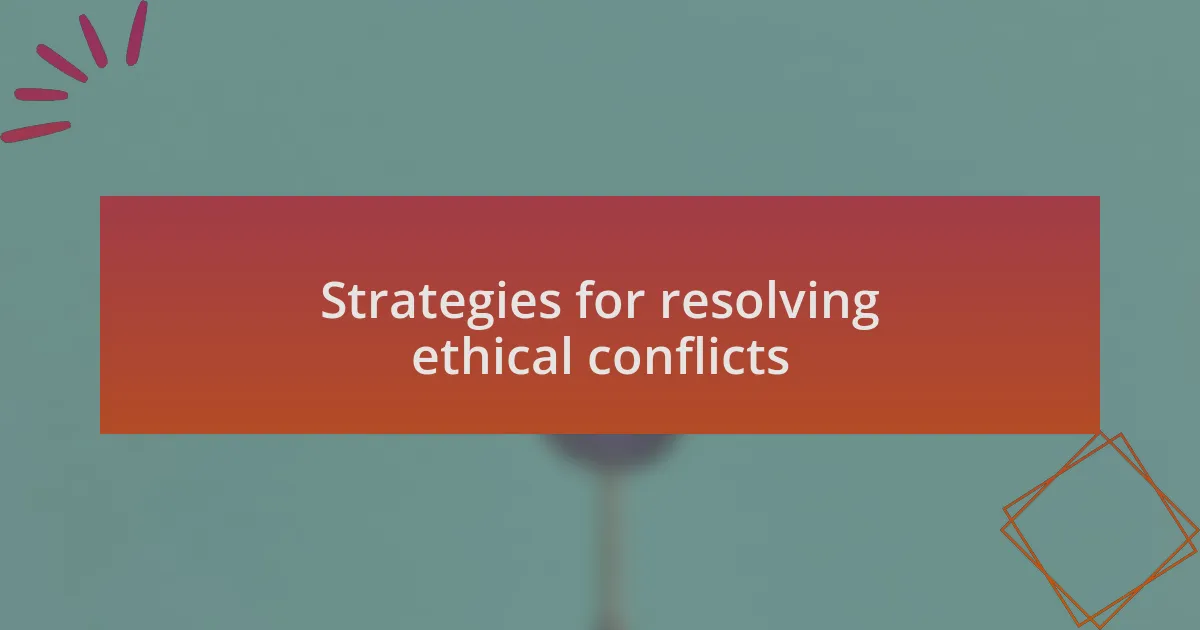Key takeaways:
- Balancing the potential benefits of research against ethical standards and individual rights is a central moral quandary in research.
- Engaging in open dialogue with colleagues can provide diverse perspectives and foster a supportive environment for resolving ethical conflicts.
- Revisiting ethical guidelines and frameworks specific to a field helps reframe dilemmas and promote patient welfare alongside research integrity.
- Reflecting on past experiences in ethical research practices can guide present decisions and enhance trust and cooperation with participants.

Understanding moral quandaries in research
Moral quandaries in research often arise when the pursuit of knowledge conflicts with ethical standards. For instance, I once faced a situation where a promising study could greatly benefit patient outcomes but involved testing a treatment that had not been thoroughly vetted for safety. How can we balance the potential benefits against the risks to the individuals involved?
I vividly recall a colleague grappling with the decision to enroll vulnerable populations in a clinical trial. The challenge was immense: protecting those who might not fully understand the implications of their participation. It made me question, should we prioritize the advancement of science over safeguarding individuals’ rights? The emotional weight of that decision lingered with us, underscoring the gravity of our responsibilities as researchers.
Navigating these moral dilemmas requires us to deeply reflect on our values. I often ask myself, what legacy do I want to leave behind in the field of surgical research? The answers are rarely straightforward, indicating that our moral compass must be continuously calibrated against both the ethical and scientific implications of our work.

Strategies for resolving ethical conflicts
When faced with an ethical conflict, one effective strategy I’ve found is to engage in open dialogue with colleagues. I remember a time when a discussion with peers allowed us to explore different perspectives on a challenging issue regarding patient consent. It became clear that sharing our thoughts not only fostered a supportive environment but also provided us with diverse insights that helped align our moral lenses.
Another approach involves revisiting the ethical guidelines and frameworks specific to our field. In one instance, while examining a controversial research method, I took the time to study the ethical frameworks laid out by our professional organizations. This process allowed me to reframe my dilemma and provided a pathway to a resolution that honored both patient welfare and the integrity of research.
Additionally, reflecting on past experiences can offer valuable guidance. I often think back to a project where I prioritized transparency with participants, which led to increased trust and cooperation. This not only eased my concerns but also highlighted how ethical research practices foster relationships that ultimately enhance the quality of our findings. Isn’t it remarkable how our own histories can serve as beacons during ethical storms?